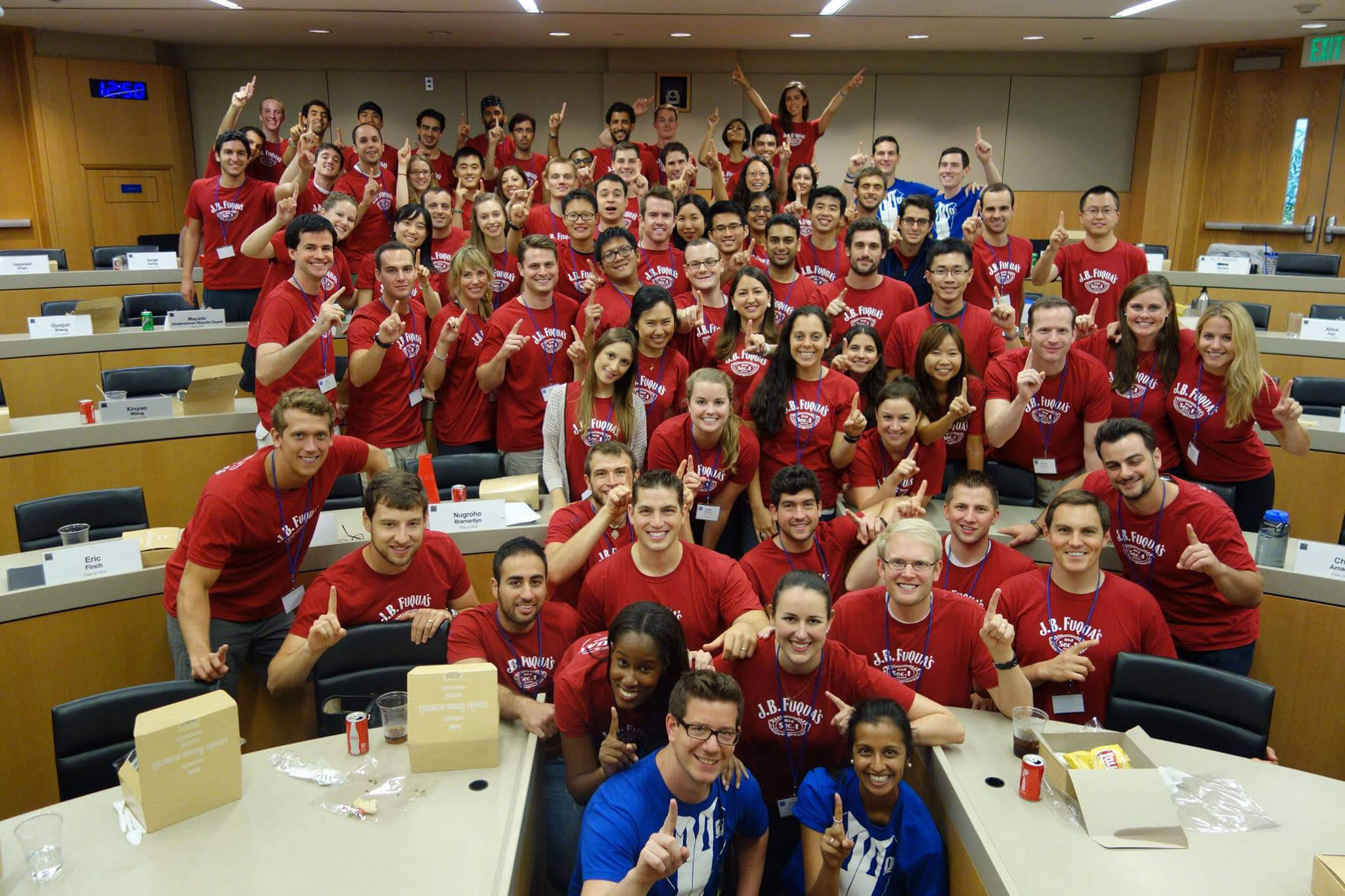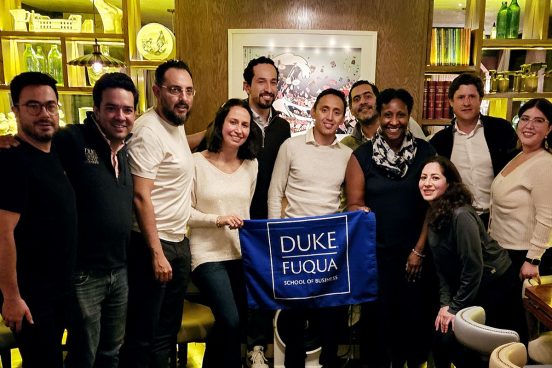Duke Daytime MBA Student Blog

Transitioning from Public Relations to Fuqua and What I Learned Along the Way

Before starting my last six-week term as a first year student at Fuqua, I had an opportunity to catch my breath during the two-week spring break and reflect on my experience over the last year. As I enjoyed a once-in-a-lifetime experience during a phenomenal Fuqua GATE trip to South Africa, I couldn’t help but think that just a couple years ago while working in public relations (PR), I wondered if any of it was possible for me.
I was convinced the MBA was the right jump in order to move into a more central marketing role with business ownership, but I had no idea if I had the right type of experience and skills to cut it in a competitive MBA applicant pool and furthermore, what I could contribute once there.
After speaking with my friends and classmates, I now know this trepidation is not unusual. If you are like I was and in PR considering an MBA, or just have similar questions within your own field, I want to share some tips I wish I knew back when I started my research and the application process.
Before You Apply
Be laser-focused about your goals: Typically, MBA grads do not go into (or back into) PR. So, while I know you’ve heard it a million times, we need to start here: the MBA is a significant time, financial and (yes) emotional investment. Even before the MBA itself, you will sink a lot of time, energy and heart into your applications, and it will quickly (and rightfully) become the most important thing on your mind. So it may seem obvious, but given that you are likely leaving a very successful and/or promising PR career behind, make sure you are crystal-clear on why you want to hit that reset button in the first place.
Look for opportunities to work with data: One of my biggest worries was a lack of professional experience with data, especially compared to my classmates with more “hard skill” backgrounds. As you work towards getting into a top MBA program (Fuqua, obviously!), push for opportunities to work with client (or your organization’s) data and/or conduct surveys to uncover trends and build stories around them. Your organization might be willing to train you and you’ll likely do better, quantitatively-informed work in the short term while adding skills and experiences that will benefit you from day one of your MBA.
While Working on Applications
Do your own PR: Talk to people in your network or old colleagues who have transitioned from PR to an MBA, or ask admissions at your target schools to put you in touch with current students and/or alumni in your field. These two groups were enormously helpful for me and can give you valuable feedback on your goals and post-MBA plans, while building your “brand” at the schools in the process.
Get comfortable in the “unknown”: As mentioned at the outset, the jump from PR to an MBA is not typical. Because of that, it might be hard to get solid advice from those immediately around you on the challenging application process. I hope I can provide some advice by listing these resources that I uncovered and found immensely helpful during my process:
- People: This is similar to the tip before you apply, but it is worth repeating: if there is only one thing you do to get more comfortable in the admissions process, make sure it is talking to students that actually go to the schools you are applying to!
- Books: There are a plethora of admissions guides out there, all claiming to offer the same thing. However, one really stood out for me: “MBA Admissions Strategy: From Profile Building to Essay Writing.” The book offers a fantastic overview of the process and great insight into how to build your story without being overly formulaic while empowering your own personality and experiences to fuel your applications. One thing I do not advise in this category is purchasing, requesting or looking too much at past essays from other applicants. While it is helpful to understand how to write an admissions essay (the book above will help with that) overly relying on the successful work others have done will, at best, make you sound like them and at worst, deflate your confidence if you worry your experience, background, etc. does not “sound like theirs.”
- Online: As with books, there are a ton of these out there, but there are three where I spent the majority of my time. All of these served as resources for current MBA news, communities where I found fellow applicants with PR backgrounds, and or admissions advice:
There is truly no “right” or “wrong” experience to highlight in your application: Instead of worrying about whether or not you closed million-dollar deals or how much budget you were responsible for, think instead about the skills you worked hard to develop. Teamwork, presentation, written communication and navigating people and client dynamics are all skills I developed in PR that help me every day at Fuqua. Stories and experiences that demonstrate those skills are what I honed in on.
When You Get to Campus
Use your PR “sixth sense”: A unique aspect of PR professionals is that we are responsible for managing and handling the appearance of actions by so many parties—ourselves, clients, organizations and all those affiliated with them. As such, we get used to thinking about and developing a gut sense around perception or “optics” (a more popular word these days). Use that to your advantage in the classroom. At Fuqua, I use this perspective every class to (hopefully) improve discussions and the assignments I produce.
Warren Buffet once said, “It takes 20 years to build a reputation and five minutes to ruin it. If you think about that, you’ll do things differently.”
Use that “difference” to your advantage in your MBA journey—PR can and should be a wonderful asset in it.
If you work in PR and have questions about what I’ve seen during my transition, I’m happy to help!



